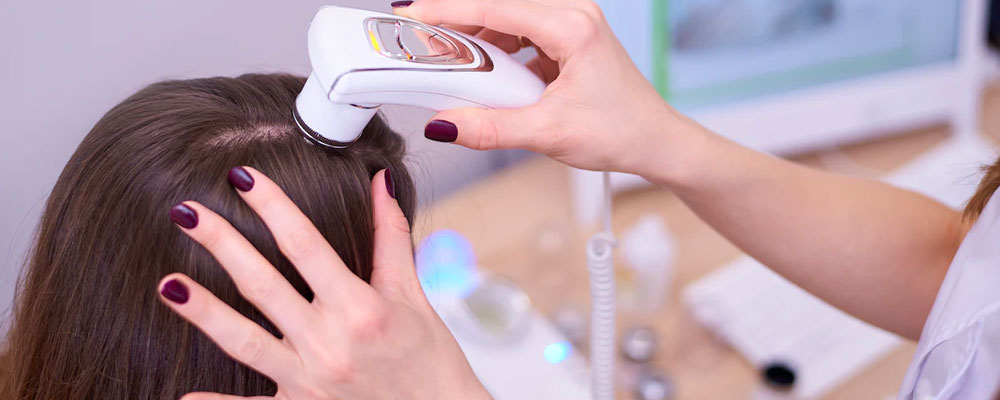Trichology
Trichology is the branch of dermatology that focuses specifically on the study of the hair and scalp. Trichologists are professionals who specialize in diagnosing and treating disorders related to hair and the scalp. They work to understand the causes of various hair and scalp conditions and provide appropriate solutions, which may include medical, nutritional, or lifestyle interventions.
Key aspects of trichology include:
- Hair and Scalp Health:Trichologists examine and assess the health of the hair and scalp. They evaluate factors such as hair texture, density, and growth patterns, as well as the condition of the scalp.
- Hair Loss and Alopecia: Trichology addresses various forms of hair loss, including androgenetic alopecia (pattern baldness), alopecia areata, and other types of alopecia. Trichologists work to identify the underlying causes of hair loss and recommend appropriate treatments.
- Scalp Disorders: Trichologists diagnose and treat scalp conditions such as dandruff, psoriasis, seborrheic dermatitis, and fungal infections that can impact the health of the hair and scalp.
- Hair and Scalp Nutrition: Nutrition plays a crucial role in the health of hair and scalp. Trichologists may provide guidance on proper dietary habits and recommend supplements to address nutritional deficiencies that could contribute to hair problems.
- Hair Care Practices: Trichologists advise on hair care practices, including the use of appropriate shampoos, conditioners, and styling techniques. They may also offer guidance on how to prevent damage to the hair and scalp.
- Hair and Scalp Treatments: Trichologists may recommend or perform treatments to address specific hair and scalp issues. This can include topical treatments, laser therapy, and other interventions aimed at promoting hair growth and improving scalp health.
- Hormonal and Medical Factors: Trichology considers the influence of hormonal changes and medical conditions on hair and scalp health. For example, hormonal imbalances, thyroid disorders, and certain medications can impact the condition of the hair.
- Genetic Factors: Trichologists assess genetic factors that may contribute to hair and scalp conditions, particularly in cases of hereditary hair loss.
- Hair Transplantation: While hair transplantation itself is often performed by specialized surgeons, trichologists may be involved in the evaluation and management of patients before and after hair transplant procedures.


